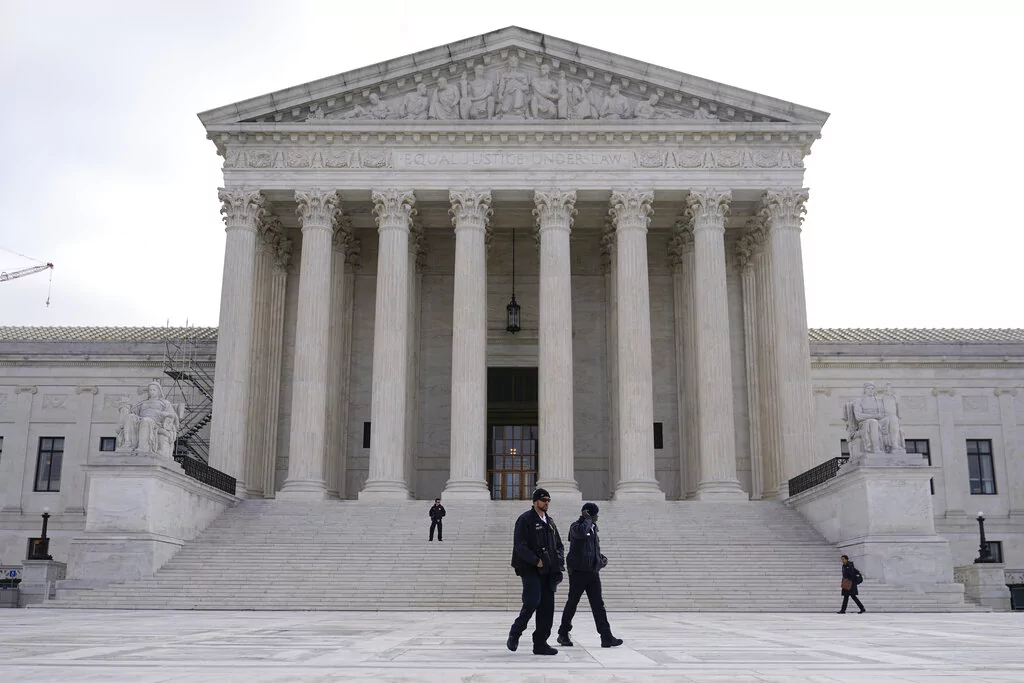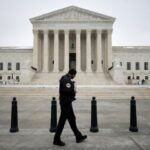
The Supreme Court announced it will review a complex redistricting case concerning Louisiana’s congressional map, which currently includes two majority-black districts.
The justices won’t hear arguments until early next year, and the 2024 elections will proceed under the challenged map, which will likely give Democrats a boost for retaking the House. However, the case could have significant ramifications for how states consider race in drawing congressional districts to comply with the Voting Rights Act.

The legal fight began in 2022 after Republicans sought to implement an updated congressional map to account for population changes reflected in the 2020 Census. The changes allowed the state to maintain the status quo of five Republican-leaning majority white districts and one Democratic-leaning majority black district. Around one-third of the state’s total population is black.
However, the map with only one majority-black district was ultimately found likely unconstitutional by U.S. District Judge Shelly Dick in 2022. The Supreme Court waded into the dispute in 2023, upholding a decision by the U.S. Court of Appeals for the 5th Circuit that blocked Dick from holding a hearing that could have forced the state to go along with a court-ordered map.
The Republican-led state legislature subsequently redrew the map in January to have two majority-black districts, including one that stretched across the state from Shreveport to Baton Rouge.

The new district arrangement benefits key Republican figures such as House Speaker Mike Johnson (R-LA) and Majority Leader Steve Scalise (R-LA). However, the changes have influenced political dynamics, affecting other state GOP incumbents such as Rep. Garret Graves. Sen. Cleo Fields (D-LA), a former congressman, is among those running in the revised districts.
Civil rights groups claimed the 2022 map failed to reflect the state’s significant black population, arguing it discriminates against black voters by limiting their representation.
After the new map with two black-majority districts was passed in response to litigation, a group of self-described “non-African American voters” challenged the map as a racial gerrymander in violation of the Fourteenth Amendment’s equal protection clause.
A lower court ruling by a three-judge panel previously invalidated the redrawn map in response to the complaint from non-African American voters, ruling 2-1 that it did amount to a racial gerrymander. However, the Supreme Court allowed it to be used for the 2024 elections after an emergency appeal in May.
The American Civil Liberties Union is hoping the most recent map will be sustained by the justices.
“The legislature enacted a map with two majority-Black congressional districts after numerous federal courts indicated it was required by the Voting Rights Act,” said Sarah Brannon, deputy director of the ACLU’s Voting Rights Project.
Gov. Jeff Landry (R-LA), initially defending the existing map as state attorney general, supported a new map, including an additional majority-black district.
CLICK HERE TO READ MORE FROM THE WASHINGTON EXAMINER
The high court’s decision will address whether race was improperly emphasized in shaping the second majority-black district, adding significant stakes for representation and electoral outcomes in Louisiana.
The justices already weighed on a similar dispute in South Carolina last term. Six Republican-appointed justices found South Carolina did not violate the Fourteenth Amendment by moving black voters from one congressional district to another for partisan advantage, though that case did not involve the Voting Rights Act.





